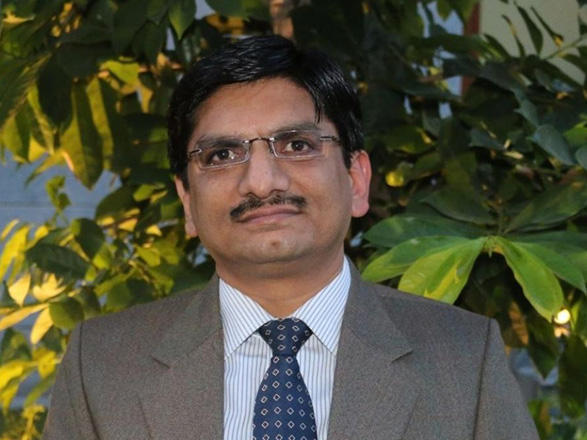Khojaly Genocide - Dark page of Human History

By Muhammad Asif Noor
Thirty years since the Khojaly genocide, one of the dark sides in the history of humanity, the victims are still waiting for justice to be delivered and served. Azerbaijan has made all global efforts to make the world realize and understand the horrific crimes against humanity, which have been perpetrated by Armenia in the regions. This February Azerbaijan commemorates the thirty years of the atrocious crimes committed against the civilians and the defenders of the town of Khojaly situated in the Nagorno-Karabakh region of the Republic of Azerbaijan.
The Khojaly Genocide is recognized and commemorated by parliamentary acts adopted in numerous countries including Pakistan. Today, there are 17 countries across the world in addition to 24 states of the US recognized the Khojaly massacre as genocide and it has been investigated under a righteous legal framework. The memories of Armenian aggression are still alive among the people as they are unable to relieve the burden of grief. This ethnic cleansing and genocide by Armenian have caused immense pain for the past two centuries. The people of Azerbaijan have been made refugees and IDPs as a result of the Armenian occupation.
The Armenian killing of innocent civilians was investigated under the Convention on the Prevention and Punishment of the Crimes of Genocide but the criminal perpetrators remain unpunished. It is important to note that the Commission identifies the facts and confirms the killing, mental and bodily harm directed by genocidal intent to exterminate in part or whole of a certain group in a town of Khojaly. Thus, in accordance with II Article of the United Nations Convention on the Prevention and Punishment of the Crime of Genocide 1948, “genocide means any of the following acts committed with intent to destroy, in whole or in part, a national, ethnical, racial or religious group. Human Rights Watch also published a report on the tragedy in 1994 terming it the 'largest massacre to date' in the Nagorno-Karabakh region. In memory of the brave people of Khojaly, Azerbaijan has erected the memorials in Azerbaijan.
The Khojaly genocide and the grave crimes committed as a result of the aggression of Armenia against Azerbaijan entail the responsibility of Armenia and those individuals who participated in the crimes. This accountability originates from international law especially the Convention for the Protection of Human Rights and Fundamental Freedoms is applied. Guided by the UN Resolution of December 11, 1946, as well as the Agreement of December 9, 1948, it may convincingly be proved that the Armenian Dashnaks have committed crimes against humanity and conspired genocide against the people of Azerbaijan.
Incontrovertible is the fact that in 1918-1920 Armenian Dashnaks wiped hundreds of Azerbaijani villages off the face of the earth, killed thousands of women, old men, and children. During the genocide, 565.000 out of 575,000 Azerbaijani population of Armenia were killed. Armenia always denies accepting the responsibility of such a crime and falsifies the facts. They share their own interpretations having no reality or logic. Even such propaganda will not prove the facts wrong. The facts have been recognized and reported by the global community including western media and leading organizations.
The dark side of the story is the denial of Armenia and the refusal of taking responsibility for the massive genocide in the region. The Prime Minister of Armenia Nikol Pashinyan termed the genocide a 'blatant lie' and accused Azerbaijan of killing the people itself. This statement is deferred by the Human Rights Watch report putting direct responsibility on Armenian forces in Karabakh at the time of the genocide. Rachel Avraham, Researcher at the Israeli Center for Near East Policy Research, argued that Armenian denial of the tragedy has been a major impediment to peace in the region. It is more of a tragedy not to take the responsibility for their actions and allegedly blaming Azerbaijan for the killing of its own people.
Armenia did not stop the aggression against Azerbaijan over decades and again pitched against Azerbaijan in 2020 but faced a mature army at the borders. Azerbaijani forces overrun the defenses and regained then control of territories earlier occupied by Armenia. Azerbaijan never mistreated Armenian people in the region and offered them Azeri citizenship if they choose to stay. Immediately after the ceasefire agreement. The President of Azerbaijan authorized the development in the war-torn region and develop cultural capital in the city of Shusha with an airport. The compensation for damage caused by war, treatment of injured, protection of religious places, educational institutions, and health care centers was granted by the President of Azerbaijan.
Azerbaijan did not forget the people of Khojaly and facilitated the migrants of the Karabakh region to settle at their ancestral places. Azerbaijan has remained thankful to the states which recognize its position in the conflict. Turkey and Pakistan are two major states which acknowledge Karabakh as territory of Azerbaijan and extend diplomatic support even during challenging times.
The writer is Director Institute of Peace and Diplomatic Studies
---
Follow us on Twitter @AzerNewsAz
Here we are to serve you with news right now. It does not cost much, but worth your attention.
Choose to support open, independent, quality journalism and subscribe on a monthly basis.
By subscribing to our online newspaper, you can have full digital access to all news, analysis, and much more.
You can also follow AzerNEWS on Twitter @AzerNewsAz or Facebook @AzerNewsNewspaper
Thank you!
